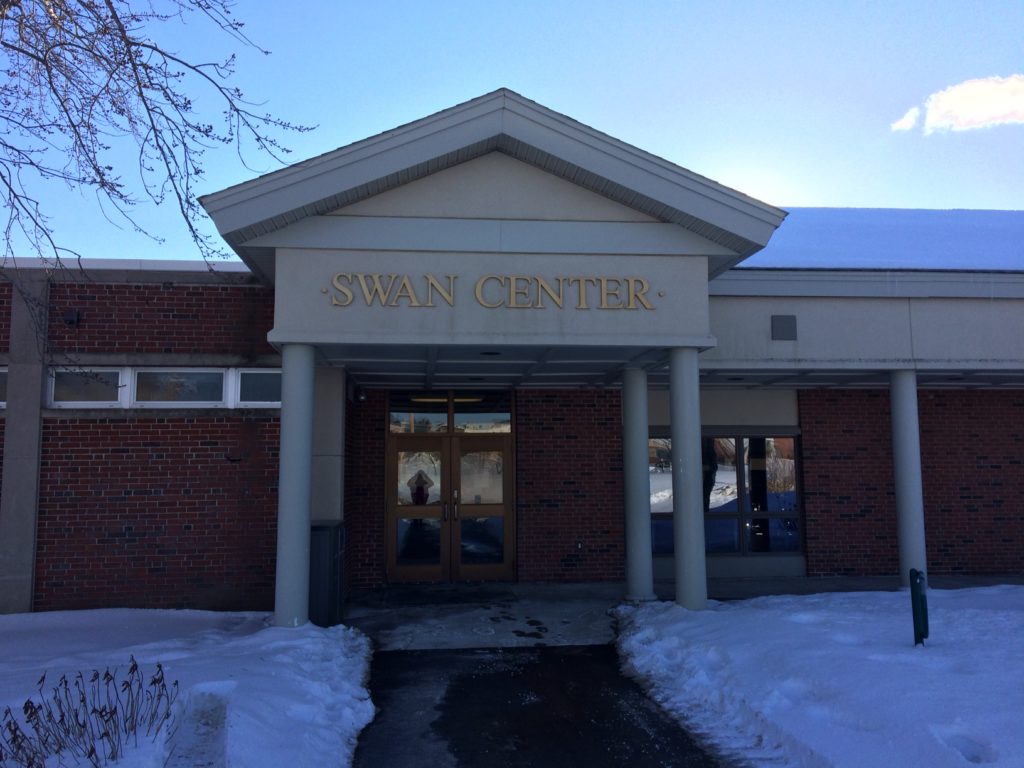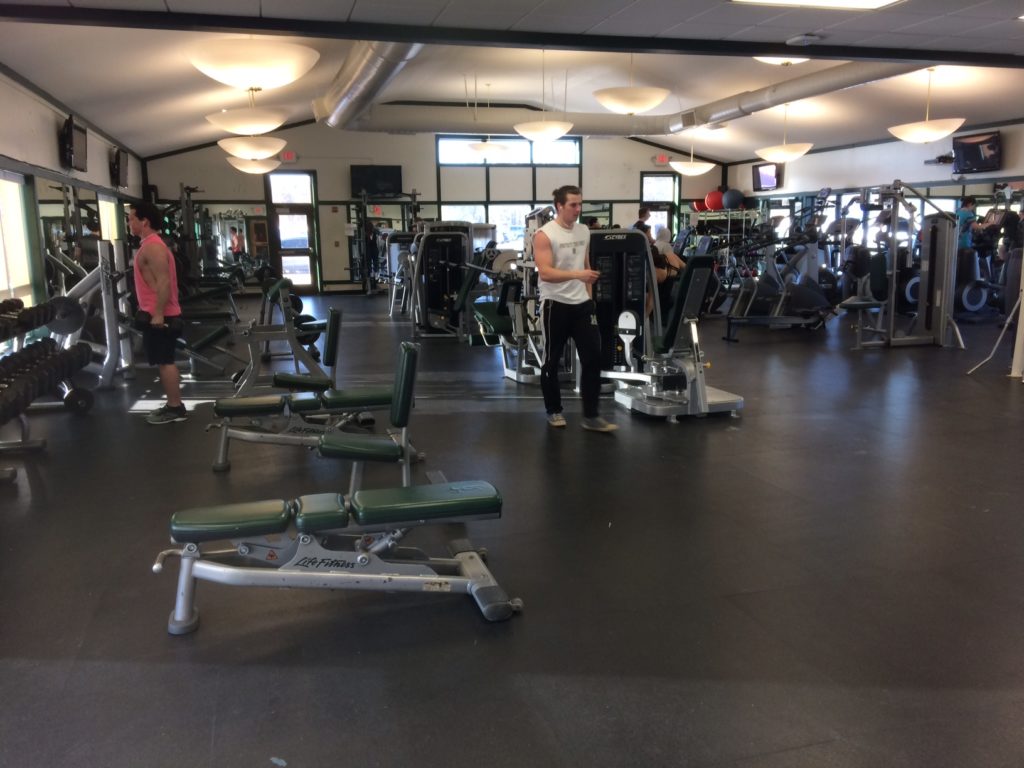By Adam LaFleur – The Spectator
March 7, 2019
BANGOR, Maine – Health is critical to the attitudes of college students. When students are not getting proper nutrition, sleep, or exercise, their academic success declines along with their well-being. College life is a daily grind with exams, papers, class projects, deadlines, athletics, professional internships, and social time all jammed into student’s hectic daily routines. If physical health begins to wane under the stress of crazy schedules and countless obligations, young people’s mental health may also decline. This can lead to depression and make students unwilling to get out of bed and face the challenges of each day.
Administrators and staff at Husson University are aware that student’s wellness is critical to their academic and professional success. Husson has several facilities and programs aimed to promote student’s health and fitness. These include an exercise gym, an on-campus doctor’s office, and customizable meals in the school’s dining hall to suit different diets. Despite these services, there are some gaps in the wellness programs offered at Husson. Students may face obstacles when attempting to use Husson’s health-related amenities.
Mike Capeci is a junior in Husson’s accounting program who uses the university’s health services. His insights show that while Husson is taking steps to promote student wellness, there are a few areas for improvement.
The Swan Center is Husson’s full-service gym with a wide range of professional exercise equipment available to students. It is located next to the Newman Gymnasium and near the Winkin Complex field on the edge of campus. The Swan Center is open from noon until 9 p.m. Monday through Thursday, noon to 7 p.m. on Fridays, and noon to 5 p.m. on weekends. Limited morning hours are also available to students who want to workout before class during the week. Capeci says the gym is an asset to Husson students.

Photo Credit: Adam LaFleur
“If the gym wasn’t there, you would see a lot of students spending money elsewhere to get their workouts in, or possibly not working out at all.”
Some students may feel uneasy going into the Swan Center to workout because they are beginners. This is a common problem for people of any age who workout in a public space for the first time, but Husson has a solution.
“Husson has recently started new workout classes on Wednesdays,” Capeci said, “for students who don’t really know much about working out or don’t feel comfortable going in by themselves.”
While the classes cater to beginners, they are not the only students using the Swan Center. Husson has a considerable population of students like Capeci, who workout regularly and are familiar with the variety of exercise machines available. Husson made a few recent changes to the equipment at the Swan Center. These adjustments are not popular with some frequent gym visitors.
“The first complaint I have is that they removed the dip station for doing free-weight dips, and they replaced it with a dip machine,” Capeci said. “I’m not really a fan of the machine because it doesn’t let me do my full range of motion when I exercise. Last semester I worked hard to the point where I’m able to do dips without any assistance. I kind of feel like getting rid of that free-weight station and replacing it with a machine isn’t going to benefit me. I’m hoping they can find a way, maybe on one of the empty walls, to put in a dip station so I can continue doing my free-weight dips.”

Photo Credit: Adam LaFleur
The loss of the dip station is not the only change Capeci disapproves. Husson also replaced the Swan Center’s hamstring machine with a new apparatus that changed the user’s position. Capeci says the conventional hamstring machine trumps the newer design Husson recently installed.
“It’s been proven that the old hamstring machine where you would lay down and curl your legs is a lot more beneficial than the seated hamstring curl because you get more of a range of motion [laying down].”
Despite his disappointment with equipment changes made in the on-campus gym, Capeci is grateful that Husson offers medical treatment to all students. The university’s Wellness Center is the equivalent of a school nurse’s office. It offers medical assistance to students with colds or the flu, sports injuries, strep throat, and other conditions. Counseling services are also available to promote optimum mental health among all students.
“I think the Wellness Center is pretty adequate,” Capeci said. “You can go in there and ask them any questions you want and they’ll help you out. For example, I strained my chest last year and I had to go in to the Wellness Center and make sure it wasn’t anything more serious than a strain.”
The Husson Wellness Center is located in a modular building between Bell Hall and the Dyke Center for Family Business. Operating hours are 7:30 a.m. until 4 p.m. Monday through Friday, with additional evening hours on Wednesdays from 5 to 7 p.m. For more information on Husson’s Wellness Center, visit this link.
Although Husson’s health services are not perfect, Capeci is satisfied with the wellness options available on campus. As a full-time resident student from New Jersey, Capeci relies on Husson’s health amenities since he is far from his family. Many other Husson students from around the United States and the world also utilize the school’s wellness programs daily.
Healthy food choices also influence student wellness. Husson’s Dickerman Dining Center does not serve supermarket-quality grade A food, but it offers meals superior to the stereotypical college dining hall fare. Students with special dietary needs benefit from a range of gluten-free, vegetarian, and vegan meal choices. Despite these options, Capeci says cross contamination of supposedly gluten-free foods is an issue.
“I know there are some kids that have celiac disease [where you can’t eat gluten] and in some cases there’s gluten in the broth of some of the meats they make [in the dining hall],” he said. “I think that’s one issue that needs to be looked at.”
Overall, Husson students have access to facilities and staff members that work to keep them healthy and successful. A collaboration between students like Capeci and Husson faculty may pave the way for continuing improvement of the university’s health and wellness programs.

